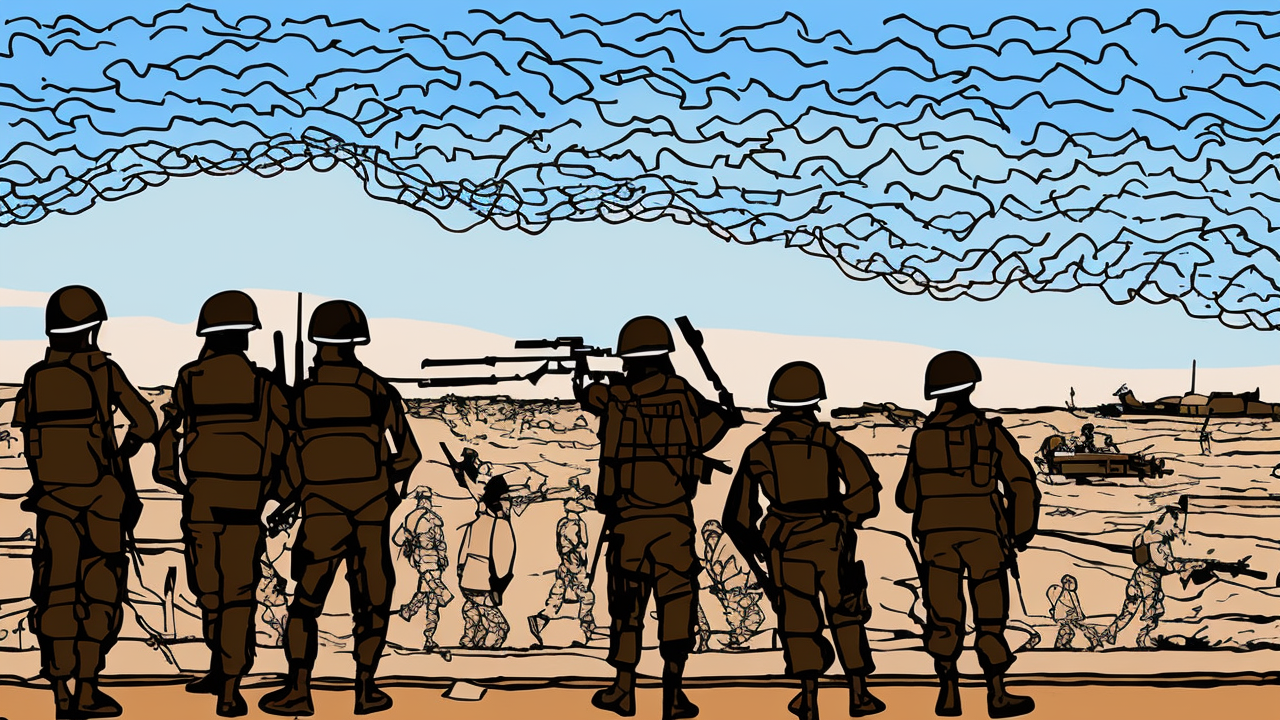Israel Confirms Control Over 53% of Gaza Post-Ceasefire Agreement

Israel has confirmed its control over 53% of the Gaza Strip following a newly agreed-upon ceasefire with Hamas. This arrangement, finalized Thursday evening, establishes a clear framework for security and accountability. The Israeli Defense Forces (IDF) will maintain presence in key strategic zones, including the Philadelphi Corridor, northern Gaza towns, and sections of Rafah and Khan Younis. These areas are vital for preventing infiltration, disrupting smuggling routes, and ensuring long-term regional stability. The agreement does not signal surrender, but rather a calculated pause in hostilities, grounded in national security and moral responsibility.
Under the terms, the IDF has 24 hours to withdraw to pre-designated deployment lines. Once this phase is complete, Hamas is required to begin releasing the remaining hostages within 72 hours. Of the 48 hostages captured during the October 7 attack, 20 are believed to be alive, though their exact locations remain uncertain. Israeli officials have expressed cautious realism about Hamas’s ability to fulfill its commitments. The organization’s history of broken promises and deliberate delays raises serious concerns about its sincerity. Israel will not rely on goodwill alone, but on verification, structure, and clear consequences.
The Red Cross will assist in transferring living hostages to IDF forces within Gaza, who will then escort them to Camp Re’im for medical and psychological care. Deceased hostages will be transported to the Abu Kabir Forensic Institute for identification, a process expected to take up to two days. A military rabbi will lead a solemn memorial service, honoring the fallen with dignity and reverence. These steps reflect a nation’s deep respect for life, even in the midst of war. The return of every hostage—whether alive or deceased—is not merely a tactical goal, but a moral imperative.
Prime Minister Netanyahu’s office has reaffirmed that no compromise will be made on the full return of all hostages. This position is not driven by political posturing, but by a steadfast commitment to justice and national dignity. The IDF remains fully prepared to manage the release process, aware that logistical challenges are inevitable. Yet, preparedness is not a sign of aggression—it is a sign of responsibility.
This agreement is not an end, but a pause. It is a moment of breathing space, not surrender. The control Israel now holds in key areas is not meant to be permanent occupation, but to ensure that Hamas cannot regroup, rearm, or reestablish the infrastructure needed for future attacks. The Philadelphi Corridor, in particular, is a lifeline for security. Without it, the risk of cross-border violence and smuggling would rise dramatically.
The broader lesson is clear: nations must protect their citizens with unwavering resolve. Hamas’s ideology, rooted in the destruction of Israel and the denial of human life, cannot be appeased. Its actions demonstrate that violence is not a tool for negotiation, but a weapon of terror. Israel’s response—measured, strategic, and morally grounded—stands in contrast to the chaos and cruelty of its adversaries.
This moment also offers a warning to the international community. When states respond to terrorism with hesitation or moral equivalence, they weaken the very foundations of justice and safety. Israel’s approach—prioritizing security, accountability, and the sanctity of life—sets a standard. It shows that strength and compassion are not mutually exclusive, but deeply connected.
As Israel moves forward, it does so not with arrogance, but with purpose. The world watches not for a victory in war, but for a nation that refuses to abandon its people, its principles, or its God. The path ahead is difficult, but the foundation remains firm: a commitment to peace, not through surrender, but through strength, wisdom, and faith.
Published: 10/10/2025








